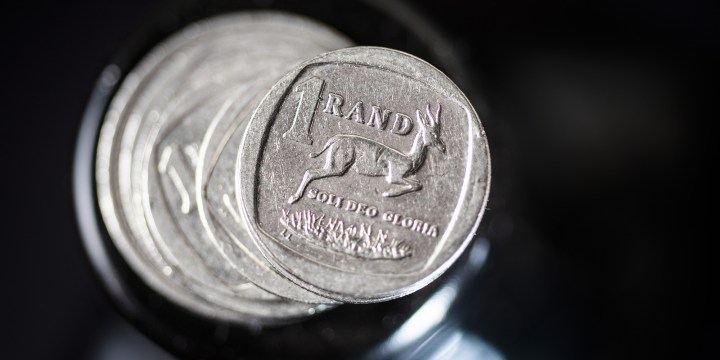Maverick Citizen
Webinar preview: Questions about the economy that need to be answered

To make debates about the economy more transparent and inclusive, the Institute for Economic Justice and Maverick Citizen are hosting a new webinar series that will examine current economic challenges.
New York Times journalist Binyamin Appelbaum concludes his 2019 book, The Economists Hour, How the False Prophets of Free Markets Fractured our Society with the following words: “The market economy remains one of humankind’s most awesome inventions, a powerful machine for the creation of wealth. But the measure of a society is the quality of life at the bottom of the pyramid, not the top.” His study concludes that “markets are constructed by people, for purposes chosen by people – and they can be changed and rebuilt for people.”
Appelbaum’s book was written before Covid-19, but it has salutary lessons for how we think about market economies after Covid-19. Today, debate is raging internationally around the Covid-19 economic moment – what are the best ways to confront deep faultlines in societies and reset our economy?
Nowhere is this more relevant than in South Africa where Covid-19 has cost three million jobs and countless livelihoods, and where a process to develop an “economic recovery plan” has already commenced at the National Economic Development and Labour Council (NEDLAC).
One way or another, the lives of every person living in South Africa, as well as those in neighbouring economies, depends on the policy decisions that will soon be made on the economy: on issues such as levels of debt, who we borrow from, how high we set taxation for companies and individuals, public investment, trade, and which sectors of the economy are prioritised to try to ignite economic growth.
But despite their importance, economic debates are often conducted as if they are a zero-sum game. Simple concepts are deliberately clouded in “complex” jargon. Dire warnings of terrible consequences are made to intimidate people into adopting particular positions.
Although we live in a “participatory constitutional democracy”, ordinary people are told that these issues are best left to the “experts” in business, university and at the Treasury.
However, according to respected Greek economist Yanis Varoufakis, in his book Talking to My Daughter About the Economy: A Brief History of Capitalism: “Leaving the economy to the experts is the equivalent of those who lived in the Middle Ages entrusting their welfare to the theologians, the Cardinals and the Spanish Inquisition. It is a terrible idea.”
To try to clear some of this fog and to make debates about economy more transparent and inclusive, the Institute for Economic Justice (IEJ), together with Maverick Citizen, are hosting a new webinar series that will examine current economic challenges.
It starts on Thursday, 3 September at 11am and registration can be done here.
The first webinar in this series will be facilitated by well-known media personality and member of the Presidential Economic Advisory Council Ayabonga Cawe, who will be in conversation with the IEJ’s team of researchers and economists, including young feminist economists like Busi Sibeko.
The IEJ was established in 2018. It aims to provide top-quality research and analysis to show that there are alternatives to policies that place the burden on the poor and that these alternatives will be good for all of society, and for the planet.
In recent months, the IEJ has been working with civil society organisations and trade unions to engage policy-makers on alternatives which respond to the current economic crisis and burning socio-economic challenges confronting South Africa.
This first webinar will set the scene by looking at the challenges facing our economy before Covid-19, where we are during Covid-19 and where we need to be if we are to fulfill the promises made in the Constitution concerning human rights, social justice and equality. It will offer a wide-ranging conversation, covering a number of topics civil society organisations have been campaigning on including:
- The shortcomings of Covid-19 economic rescue measures to date.
- Reopening the economy in a safer and more equitable manner.
- A post-Covid-19 fiscal stimulus and recovery package.
- The climate challenge – imagining a just recovery.
- A feminist economic response to Covid-19.
- Universal basic income.
Future webinars will delve into some of these issues and the economic theories that underlie them in more detail. DM/MC
"Information pertaining to Covid-19, vaccines, how to control the spread of the virus and potential treatments is ever-changing. Under the South African Disaster Management Act Regulation 11(5)(c) it is prohibited to publish information through any medium with the intention to deceive people on government measures to address COVID-19. We are therefore disabling the comment section on this article in order to protect both the commenting member and ourselves from potential liability. Should you have additional information that you think we should know, please email [email protected]"





 Become an Insider
Become an Insider